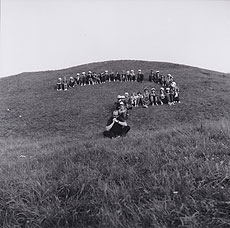
Scot McKnight has an intriguing post regarding Sharon Baker’s book Razing Hell: Rethinking Everything You’ve Been Taught About God’s Wrath and Judgment. His article here.
After you read these 7 considerations (from Scot’s post), will you please comment here?
1. Theodicy: how does God deal with evil if it, in effect, exists for ever in a hell-state? Does evil not continue to exist, even in spite of the statement in Revelation 21:1-4 that death and suffering will be no more? So, the issue here is squaring God’s goodness with eternal evil.
2. Eternal hopelessness: a traditional hell does not permit any hope after death for anyone, including those who have never heard. Is there a law that says God’s grace can only be active in the temporal sphere — that is, during our physical lifetime?
3. Eternal evil: does not the traditional view entail the view that God never really does purge his world of evil?
4. Justice vs. Love: the issue here is an old one. If God is love, how does justice fit in with that love. Is God ambivalent or split? An image of God that emerges for many is a cruel father who guides people to think of eternal punishment as an act of love.
5. Eternal divine violence: assumptions are that punishment is an act of violence and eternal punishment would mean God is eternally violent. She connects this view of God with acts of violence in history. She thinks God’s violence contradicts God’s love.
6. Retributive justice: again, a major issue is that God’s justice in the Bible — in Christ — is restorative but hell is a belief in a retributive justice that never becomes restorative.
7. Eternal punishment for temporal sin: how can it be just to punish a human being, who sinned temporally — that is over a life time (and no more), for an eternity for that temporal sin?


